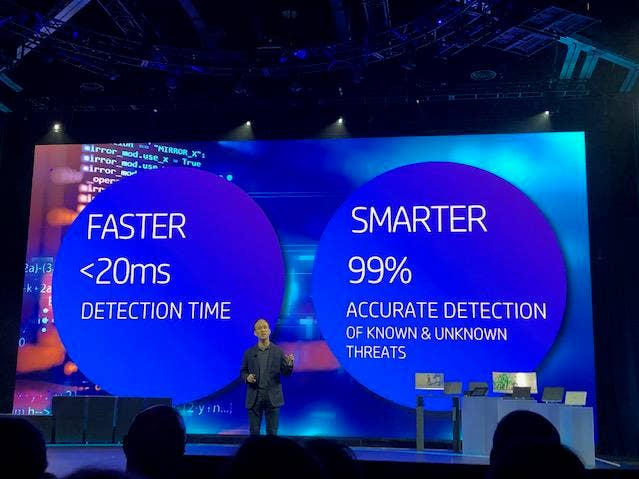HP Unveils AI-Driven Software Sure Sense To Block Unknown Malware

HP Inc. is expanding the scope of its security push with new software that uses artificial intelligence to block malware in near-real-time, including previously unknown malware.
The software, called Sure Sense, was unveiled this week at the HP Reinvent 2019 global partner conference in Houston. HP plans to make Sure Sense available on select PCs starting in May, executives said.
[Related: HP Unveils New Endpoint Security Service, Including For Non-HP PCs]
"This goes beyond every security technology today because today most primarily block against known malware. This [blocks] both known and unknown malware," said Alex Cho, president of HP's personal systems business, during Reinvent 2019. "It's able to detect never-before-seen malware, and stop 99 percent of them in less than 20 seconds."
The software builds on HP's efforts to secure its PC portfolio against a variety of cybersecurity threats, including BIOS attacks (with Sure Start), browser malware (with Sure Click) and visual hacking (with Sure View). This week at Reinvent 2019, the Palo Alto, Calif.-based company also unveiled a new security service for protecting against malicious files and links on Windows 10 PCs, including for PCs from vendors other than HP.
The debut of Sure Sense comes as existing cybersecurity offerings are having trouble keeping up with the vast amount of malware being created, said Andy Rhodes, global head for commercial personal systems, in an interview with CRN.
"One small breach can be catastrophic. You've sort of got to fight fire with fire," Rhodes said. "Malware is being created with AI, so you need to attack it with AI."
While HP isn't disclosing many specifics on how Sure Sense will work at this stage, Rhodes said that the software will use a deep-learning engine to learn what malware looks like and shut the threats down instantly.
"It's the brain that says, ‘I know what malware looks like—and this looks like a malware, this smells like a malware. It is a malware,’" he said.
Sure Sense will "be able to process that in real time—do it in the time it takes to open a file—and shut that process down,” Rhodes said.
Juan Fernandez, vice president of managed IT services at Oklahoma City, Okla.-based ImageNet Consulting, said that the move deeper into security software by HP—which has already "hardened" the hardware security layer on its PCs—is a smart one.
"What they're doing with AI, that is just far beyond what we've ever seen before," Fernandez said. "This is the active mitigation of attacks on a machine in real time. It's a huge announcement for HP to get into that game. That's not a traditional HP play."
Fernandez said believes that Sure Sense may be able to displace some existing security offerings for partners and customers, as well.
"You've got firewall vendors that do this at the edge, you've got infrastructure vendors that do this on the internal side of the network, and then you have software manufacturers that are doing this on the endpoint," Fernandez said. "That disrupts a lot of things that we're used to doing in the IT space."